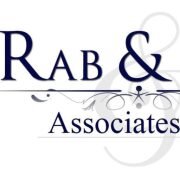Best Collaborative Law Lawyers in Dehradun
Share your needs with us, get contacted by law firms.
Free. Takes 2 min.
Free Guide to Hiring a Family Lawyer
List of the best lawyers in Dehradun, India
About Collaborative Law in Dehradun, India
Collaborative Law in Dehradun, India, has been gaining traction as an alternative dispute resolution method, particularly in family law matters such as divorce and child custody. This legal approach emphasizes mutual respect, open communication, and cooperation between parties to reach a settlement out of court. It involves collaborative lawyers and other professionals, such as financial advisors and therapists, working together to facilitate negotiation, saving time, and reducing the adversarial nature of traditional legal processes.
Why You May Need a Lawyer
Choosing Collaborative Law can be beneficial in situations where parties seek an amicable resolution while minimizing conflict. Common scenarios include:
- Divorces where parties wish to preserve a civil relationship for co-parenting or other reasons.
- Arrangements regarding child custody, visitation, or support where both parties agree on collaborative negotiation.
- Property settlements where parties prefer to maintain control over the process rather than leave it up to a court decision.
- Business disputes where preserving professional relationships is mutually beneficial.
A lawyer skilled in Collaborative Law can guide you through these processes, focusing on negotiation strategies and ensuring all parties' needs and interests are addressed.
Local Laws Overview
Dehradun, as part of India, recognizes collaborative methods of dispute resolution, aligning with the broader shift towards alternative dispute mechanisms across the country. Key local aspects include:
- The emphasis on voluntary participation, meaning both parties must agree to the collaborative process willingly.
- Confidentiality provisions ensure that discussions and agreements within the collaborative process are not disclosed in court.
- Engagement of neutral professionals, such as financial neutrals and child specialists, to support the collaborative team.
These aspects are designed to ensure a fair and transparent resolution process that meets the specific needs and circumstances of the parties involved.
Frequently Asked Questions
What is Collaborative Law?
Collaborative Law is a legal process aimed at resolving disputes without going to court. It involves both parties, their respective lawyers, and, often, other professionals working together to reach a settlement agreement.
How is Collaborative Law different from mediation?
While both are alternative dispute resolution methods, Collaborative Law involves the parties and their lawyers actively and jointly working towards a solution, whereas mediation uses a neutral third-party mediator to help facilitate discussions.
What areas of law can Collaborative Law be applied to?
It is most commonly applied in family law, especially divorce and child custody issues. However, it can also be used in business disputes, employment issues, and other civil matters.
How confidential is the Collaborative Law process?
The entire process is confidential. Neither party can use the information disclosed during collaboration against the other in court if the process ends without a settlement.
What happens if an agreement cannot be reached?
If a settlement is not reached, the collaborative lawyers involved must withdraw, and the parties may then pursue litigation with different attorneys.
Can I choose any lawyer for a collaborative case?
It's crucial to choose a lawyer who is trained and experienced in Collaborative Law to ensure proper facilitation of the process and compliance with its principles.
Are decisions in Collaborative Law legally binding?
Agreements reached can be made legally binding, similar to court orders, once all parties consent and the documents are filed with the court.
How long does a Collaborative Law process take?
The duration varies depending on the complexity of the issues and the willingness of parties to cooperate. Generally, it is faster than traditional litigation.
Is Collaborative Law recognized in Dehradun's legal system?
Yes, Collaborative Law is recognized and encouraged as a form of Alternative Dispute Resolution, reflecting a broader trend towards non-adversarial dispute resolution processes in India.
What role do other professionals play in the process?
Collaborative processes may involve financial experts, child specialists, and therapists who provide neutral insights and advice to facilitate a more informed and fair negotiation process.
Additional Resources
For those seeking more information or assistance, consider reaching out to:
- The Dehradun Bar Association for referrals to attorneys experienced in Collaborative Law.
- Local NGOs and organizations focused on family welfare and dispute resolution.
- Online platforms and forums where legal professionals discuss Collaborative Law practices and outcomes.
Next Steps
If you're considering pursuing a collaborative process, the following steps can help you get started:
- Consult with a lawyer experienced in Collaborative Law to evaluate if this approach suits your needs.
- Ensure that all parties involved are willing to commit to the collaborative process thoroughly.
- Gather any relevant documents and information to facilitate productive discussions.
- Set clear objectives for what you wish to achieve through the process.
Taking these proactive steps can help facilitate a smoother and more effective collaborative process, potentially providing a more satisfactory outcome for all involved.
Lawzana helps you find the best lawyers and law firms in Dehradun through a curated and pre-screened list of qualified legal professionals. Our platform offers rankings and detailed profiles of attorneys and law firms, allowing you to compare based on practice areas, including Collaborative Law, experience, and client feedback.
Each profile includes a description of the firm's areas of practice, client reviews, team members and partners, year of establishment, spoken languages, office locations, contact information, social media presence, and any published articles or resources. Most firms on our platform speak English and are experienced in both local and international legal matters.
Get a quote from top-rated law firms in Dehradun, India — quickly, securely, and without unnecessary hassle.
Disclaimer:
The information provided on this page is for general informational purposes only and does not constitute legal advice. While we strive to ensure the accuracy and relevance of the content, legal information may change over time, and interpretations of the law can vary. You should always consult with a qualified legal professional for advice specific to your situation.
We disclaim all liability for actions taken or not taken based on the content of this page. If you believe any information is incorrect or outdated, please contact us, and we will review and update it where appropriate.










